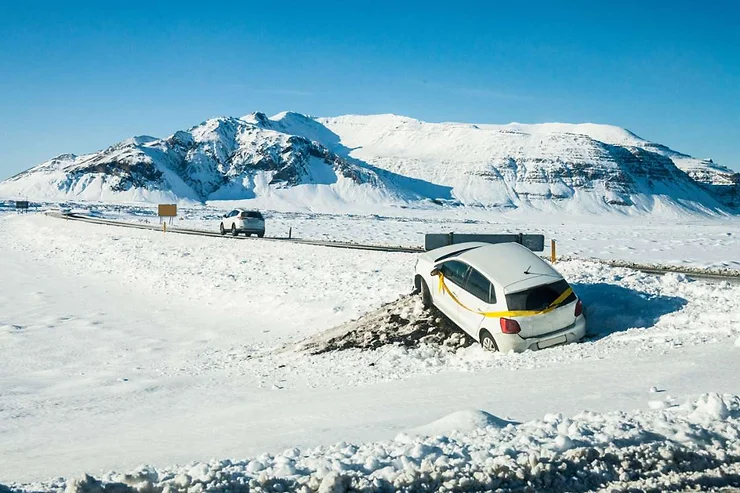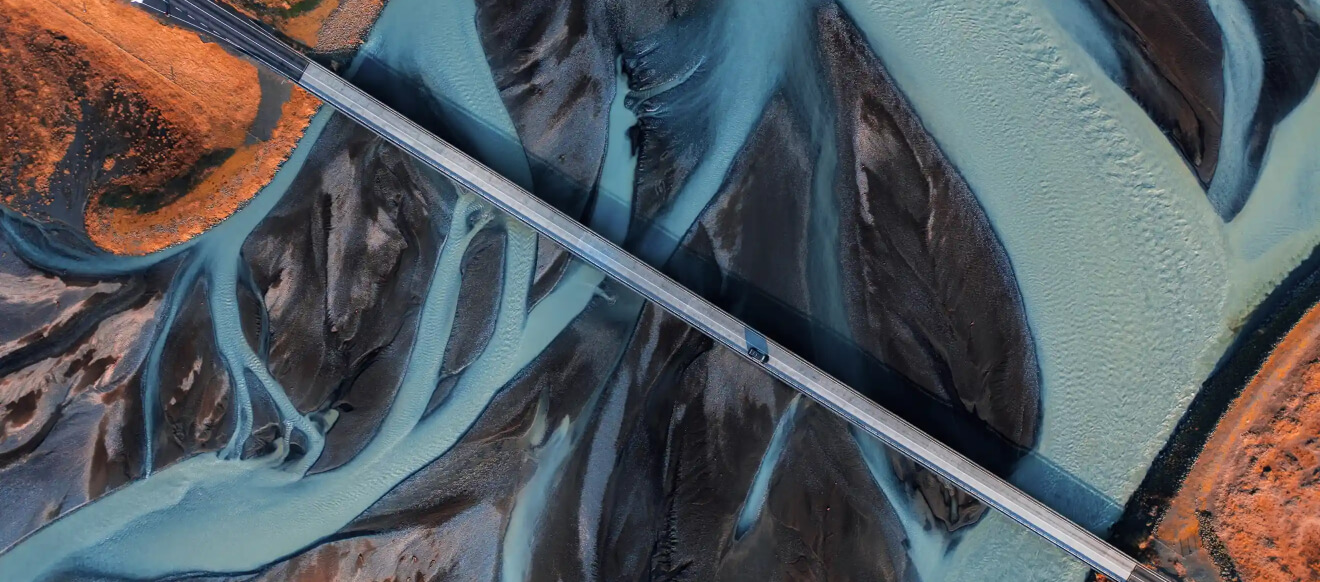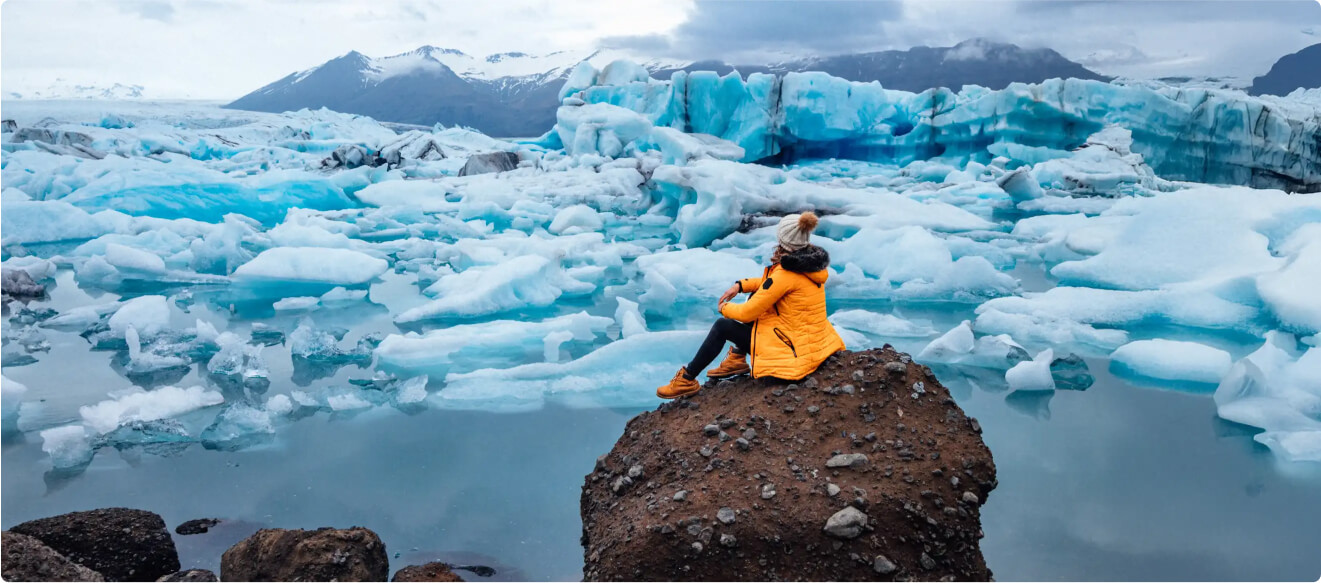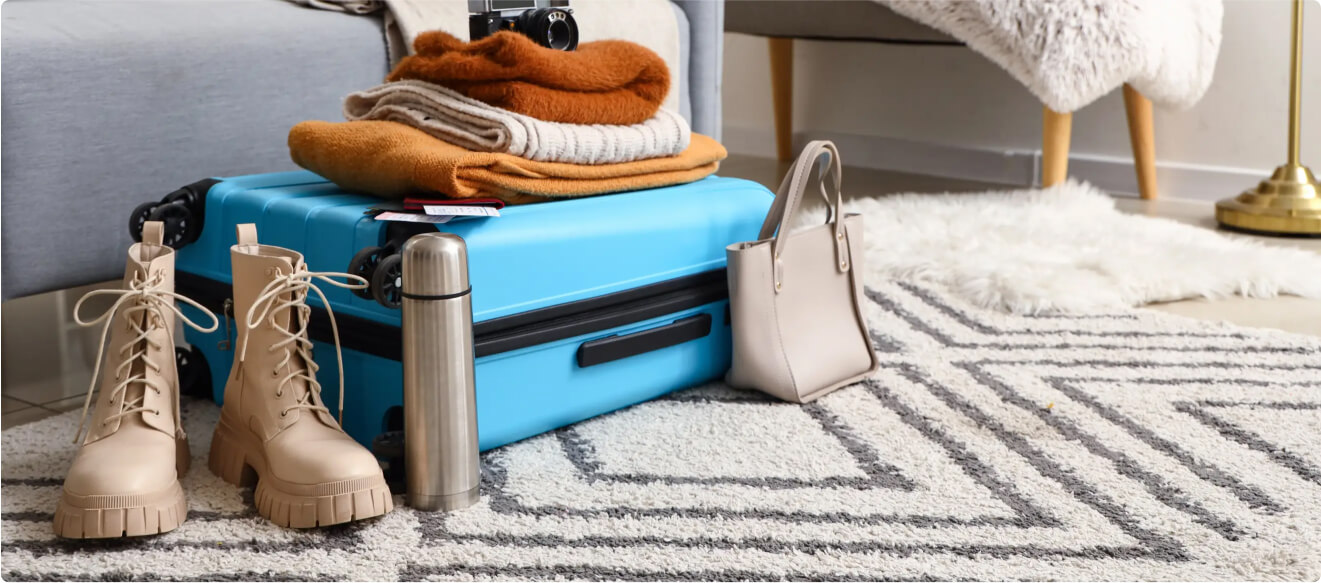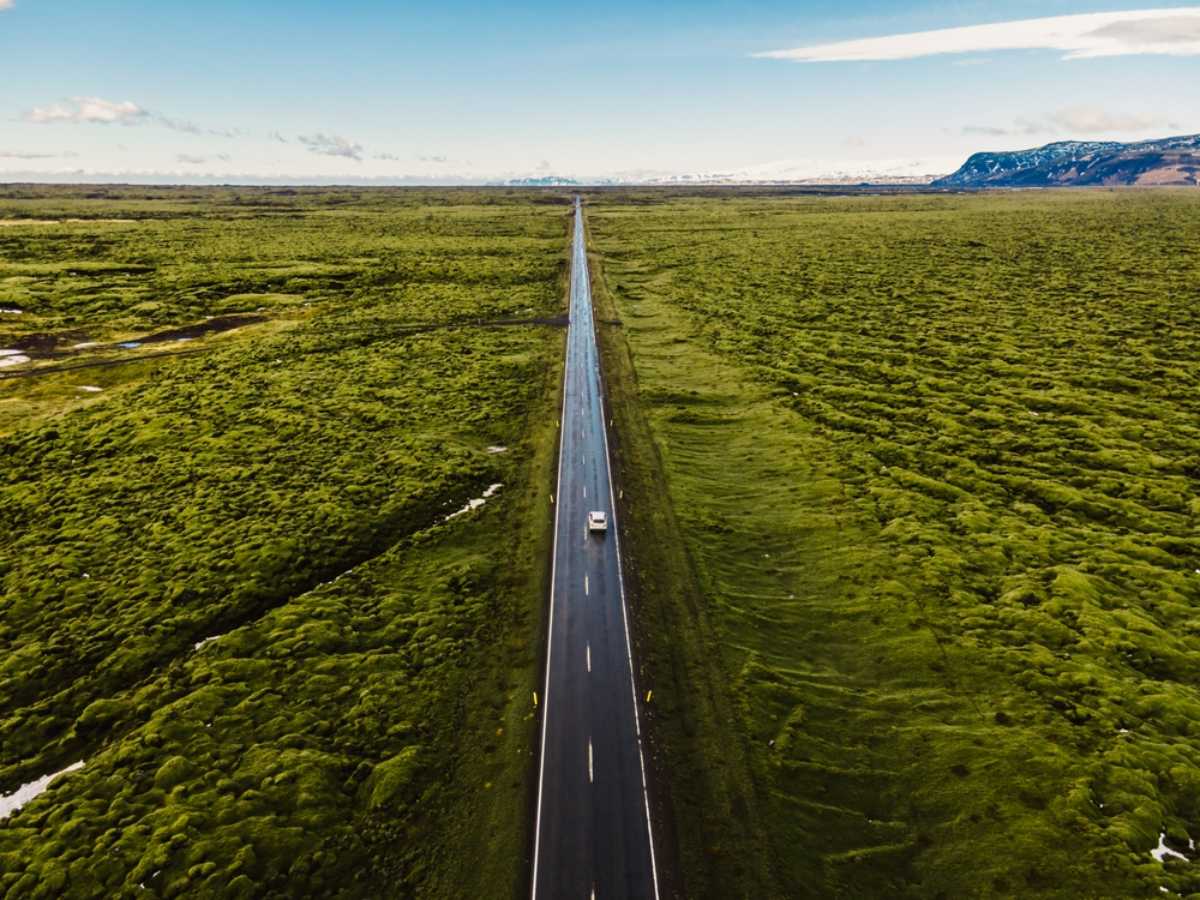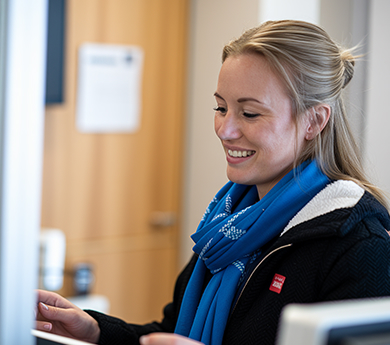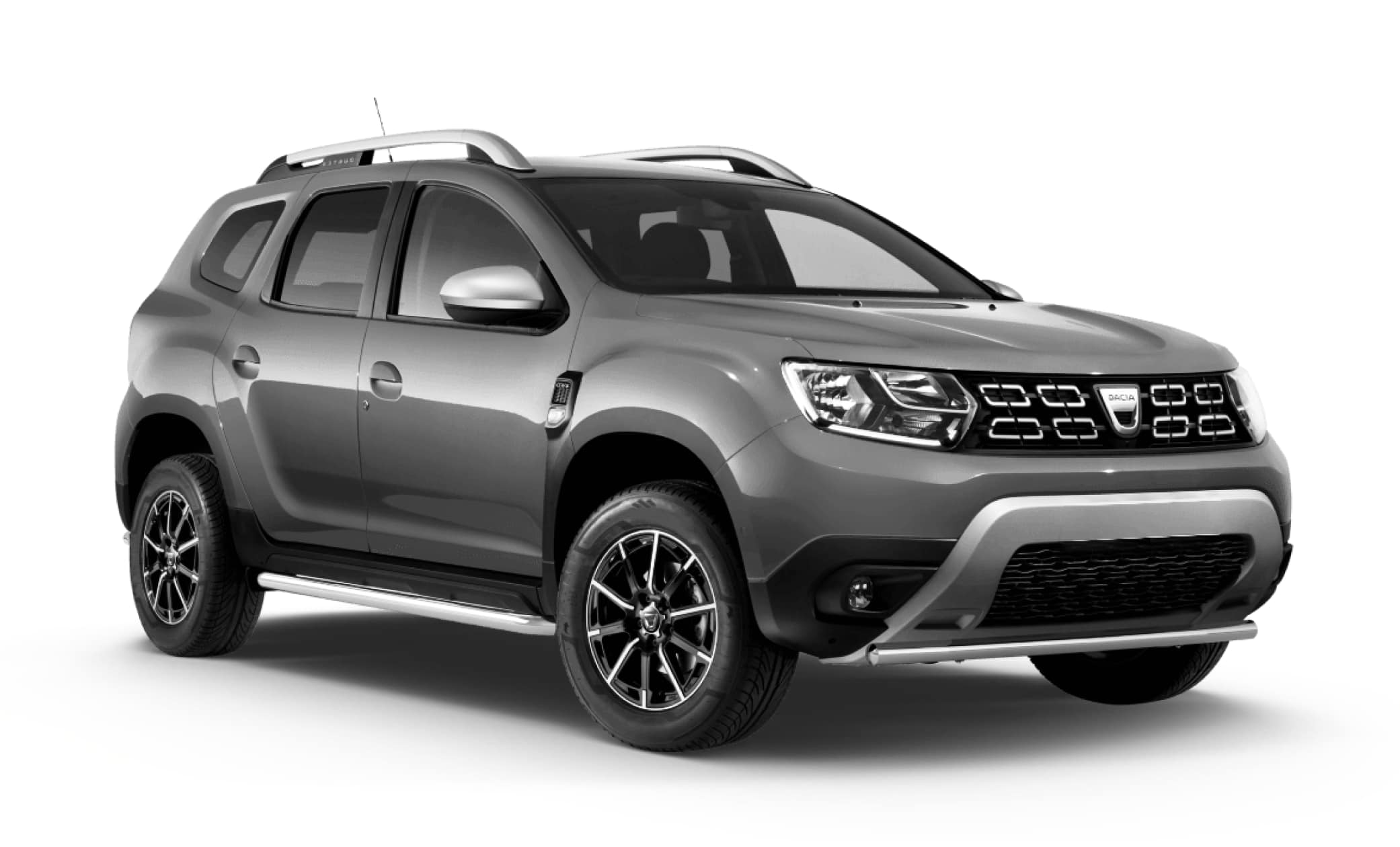Accidents happen, even on Iceland’s dreamy roads. One minute you are chasing waterfalls, the next you are staring at a dented bumper in a windstorm. Curious about what happens if you crash a rental car here? Iceland is not like home.
Gravel spits at your paint, sheep wander into traffic, and gusts can rip doors clean off. Tourists learn the hard way that insurance fine print bites back. This guide breaks down exactly what to do after a crash, who pays, and how to dodge the sneaky costs that can drain your travel fund. Pay attention. Your wallet will thank you.
First Steps After a Rental Car Accident
When you rent a car in Iceland, you sign up for beauty and responsibility in equal measure. If things go wrong, stay calm, follow the steps below:
Ensure Everyone’s Safety
Forget the paperwork for now. When you ask what happens if you wreck a rental car, the first answer is simple: survive the moment. Iceland’s weather can go from nothing to nightmare in minutes.
- Call 112. It is Iceland’s lifeline. Police, fire, ambulance, rescue. They answer fast, day or night. Voice or SMS, it always works.
- Get to safety. Winds over 20 m/s (45 mph) are tough to handle. At 70 mph (110 km/h), they become dangerous enough to damage the car or knock you off balance.
- Light up and gear up. Hazard lights on. Put on a reflective vest. The law demands it, and in winter’s short daylight, it may save your life.
- Drop a warning triangle. Set it about 90 meters (295 feet) back. It tells other drivers you are there before they see you too late.
Exchange Information and Document the Scene
Rental car accident in Iceland? Time to play detective, not tourist. Skip a detail now, and it bites you later.
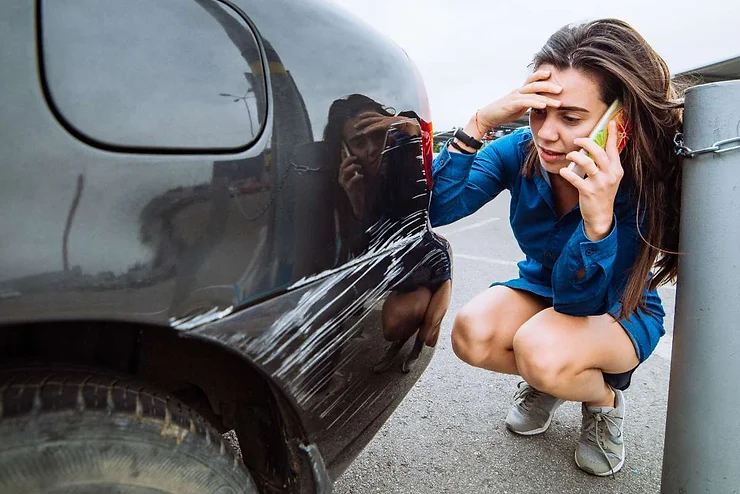
- Trade everything. Names, numbers, emails, licenses, plates, insurance, even the rental company’s VIN. Miss one and expect drama.
- Grab witnesses. If someone saw it, get their contact. Business card, napkin scribble, whatever works.
- Shoot photos like your claim depends on it. Damage, road, weather, gravel, ice. Wide shots, close-ups, weird angles. Take too many.
- Police or no police? Injuries and big damage mean yes, immediately. Small stuff? You still call if you want proof.
- Deadlines matter. Serious crashes report in 24 hours, others in seven days.
- Ring your insurer now. Fault does not matter; timing does, but more on that next, and why it’s so important.
- Paperwork? Read every line. Sign only if it screams the truth.
- Reporting to the police matters. If an accident involves injuries or significant property damage, you must file an official report. Skipping this step can invalidate your insurance coverage and may even lead to fines or legal penalties.
Contact the Rental Company
Wondering what happens when you get into an accident with a rental car? Calling the rental company first is non-negotiable. Skip this step, and you are in for financial pain.
- Notify them immediately. Any delay breaches the contract, voids insurance, and makes you liable for all costs.
- Expect big numbers if you fail. Without coverage, you cover repairs or a full replacement, often millions of ISK. Fines usually run from 45,000 to 300,000 ISK ($365-2,450).
- Registered drivers only. If someone not on the contract was driving, insurance dies instantly.
- Follow their lead. Once informed, they arrange towing, repairs, and replacement cars through 24/7 partners.
- Mistakes cost more. Roadside assistance due to negligence can add 35,000 to 450,000 ISK ($285-3,650) to your bill.
- Stick to their process. Submit accident forms, photos, reports, and only use authorized repairs.
- Do not leave the scene early. Break their rules and you face unlimited liability.
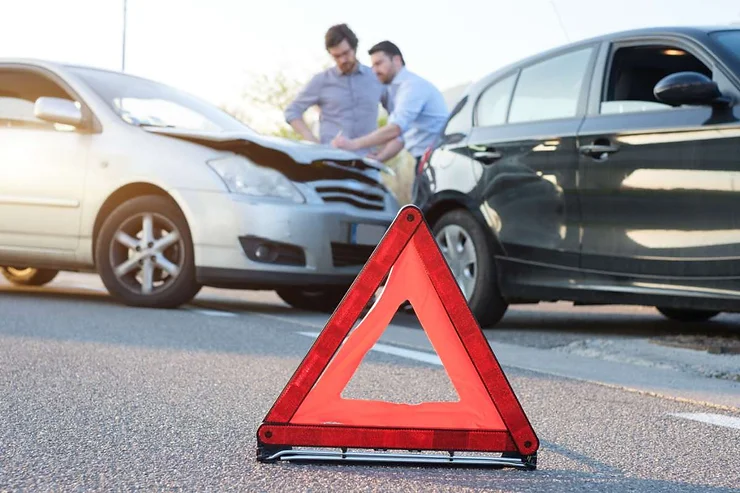
Notify Your Insurance Provider
After an accident with a rental car in Iceland, your next call goes to your insurance provider. Timing decides whether you are covered or left paying everything out of pocket.
- Call immediately. Most policies demand notice within 24-72 hours. Travel insurance often gives 7-30 days, some up to 90, but sooner is always safer.
- Understand the risk of delay. Late reporting can void your claim, cancel your policy, or bump your premiums. Insurers do not need to prove the delay hurt them to deny you.
- Send every piece of evidence. Photos of the scene, road conditions, and damage. Accident forms. Police reports. Medical records if injuries occurred. Keep receipts, witness contacts, and any emails with the rental company.
- Travel insurance asks for more. They want proof of trip payments, flight itineraries, hotel bookings, and sometimes a physician’s statement.
- Do not wait. Evidence disappears fast, and insurers see delays as red flags. Call them even if you are not sure about filing a claim. Early notice keeps your coverage alive.
How Insurance Works With Rental Cars in Iceland
Insurance gets tricky once you leave home. In Iceland, different policies overlap, exclude, or leave gaps that you only notice after a crash. Here is how each one actually works.
Your Personal Car Insurance
Depending on your home policy, to cover an accident in a rental car in Iceland is asking for trouble. Most foreign insurers simply do not cover international rentals.

- Confirm before you drive. Call your provider and ask about coverage. Most foreign policies have zero protection abroad.
- U.S. policies usually stop at Canada or sometimes Mexico. Iceland is off the map for them.
- EU residents may get third-party liability inside the EU, but this often excludes collision and comprehensive repairs.
- Coverage gaps leave you exposed. Even if coverage exists, limits rarely meet Iceland’s high repair costs or replacement value.
- Exclusions that bite hard in Iceland:
- Wind-blown doors are often denied; repairs cost 200,000-600,000 ISK ($1,400-$4,300 USD).
- Sand and gravel damage is not covered; windshield chips run 40,000-100,000 ISK ($290-$650 USD), paint repairs 25,000-75,000 ISK ($180-$550 USD).
- Undercarriage, tires, volcanic rock, and ash storm damage are often rejected; repairs can exceed 500,000 ISK ($3,600 USD).
- Water damage from river crossings is almost never included.
- Loss of use charges during repairs add thousands more.
Insurance Provided by the Rental Company
Get the insurance wrong here, and a rental car accident turns into a nightmare you will not forget. The coverage they offer looks simple until you read the fine print. Here is how it really works.
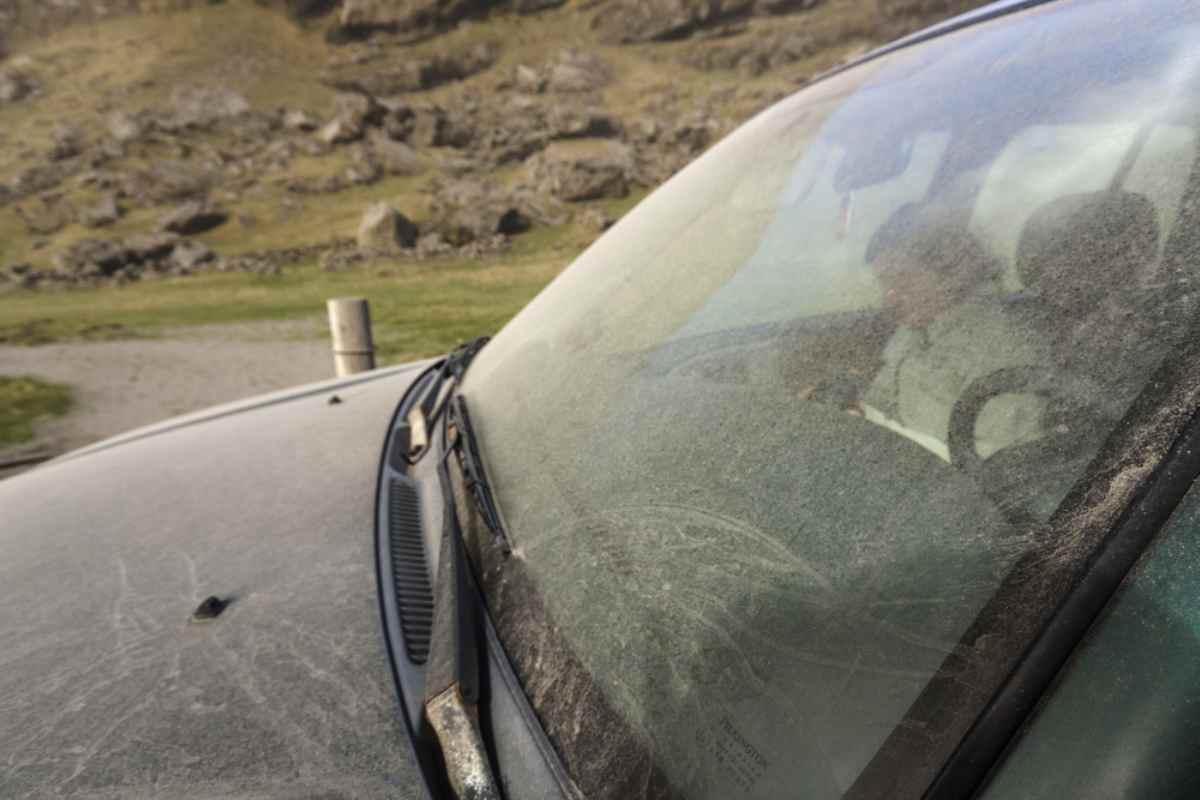
- Collision Damage Waiver (CDW): Comes with every car. Deductible hits 350,000-450,000 ISK ($2,500-$3,200 USD). Forget undercarriage, tires, water damage, and anything caused by negligence because they are not covered.
- Super CDW (SCDW): Cuts the deductible to 65,000-150,000 ISK ($460-$1,070 USD). Same exclusions. Do not think it covers everything.
- Gravel Protection (GP): Iceland’s roads throw gravel like bullets. GP saves your windshield, lights, bumper, and paint. Without it, windshields run 40,000-100,000 ISK ($290-$650 USD). Often, there is no deductible here, which is rare.
- Sand and Ash Protection (SAAP): Volcanic ash and sand eat paint and glass, which affects approximately 20% of the country. No SAAP? Repairs can climb past 1,000,000 ISK ($7,100 USD). With it, you are safe for around a 90,000 ISK ($640 USD) deductible.
- Theft Protection (TP): Covers the car, not your stuff. Deductible runs 0-3,000 USD. Leave keys in the car, and you are on your own.
- Critical Exclusions: Off-road damage, river crossings, DUI, and negligence. Break these rules, and insurance walks away.
Credit Card Insurance Coverage
Thinking your credit card will save you during a crash in Iceland? Think twice. Coverage looks good on paper, but the gaps here are big enough to drive a Land Cruiser through.
- Coverage depends on the card.
- Chase Sapphire Reserve gives primary up to $75,000.
- Chase Sapphire Preferred is also primary but capped at $60,000.
- American Express usually offers secondary coverage $50,000-$75,000, with better perks on premium cards.
- Capital One Venture X offers primary; other Capital One cards only primary abroad.
- Mastercard and Visa stick with secondary and pile on restrictions.
- Conditions apply. Pay the full rental with the card, decline the rental company’s CDW, and list every driver on the agreement. Rentals max out at 15-31 days, depending on the network.
- Iceland-specific gaps. Gravel damage? Usually not covered. Visa excludes dirt and gravel roads altogether. Off-road clauses can kill coverage on F-roads. Sand, ash, undercarriage, tires, river crossings, and even wind-blown doors are almost always excluded.
- Limitations matter. Some SUVs, like the Toyota Land Cruiser, are not covered. Coverage caps $50,000-$75,000 fall short when full replacement costs hit 2,800,000 ISK ($20,000 USD).
Common Costs You Might Face After a Crash
Insurance does not wipe the slate clean. In Iceland, repairs, fees, and ‘surprise’ charges still pile up. Here is where most people start to get really angry with their insurance broker.
Damage and Repairs
Wondering what happens if you crash a rental car in Iceland? Repairs here hurt more than the impact. With comprehensive insurance, your provider pays everything above the deductible. No coverage? You pay it all, often upfront, and watch your credit limit vanish.
Repair costs skyrocket because Iceland is expensive. Mechanics charge premium rates, VAT adds 24.5 percent, and 4.5 percent import duties hit every part. A $1,000 job in the United States easily becomes $2,500 (about 358,000 ISK) in Reykjavik.
Parts are the real nightmare. Iceland relies on imports. Even simple components take 2-4 weeks, luxury parts 6-8 weeks. Winter delays them further. While you wait, the rental company keeps charging fees.
Examples tell the story. A small windshield crack? That will end up costing $800, roughly 114,000 ISK, plus another week’s rental while waiting for the glass to arrive. Two flat tires on an F-road turned into a $600 bill, about 86,000 ISK, and towing from the highlands stacked another $1,200, close to 172,000 ISK. Get stuck far from Reykjavik and you also pay for the long haul back to a repair shop, which is never cheap.
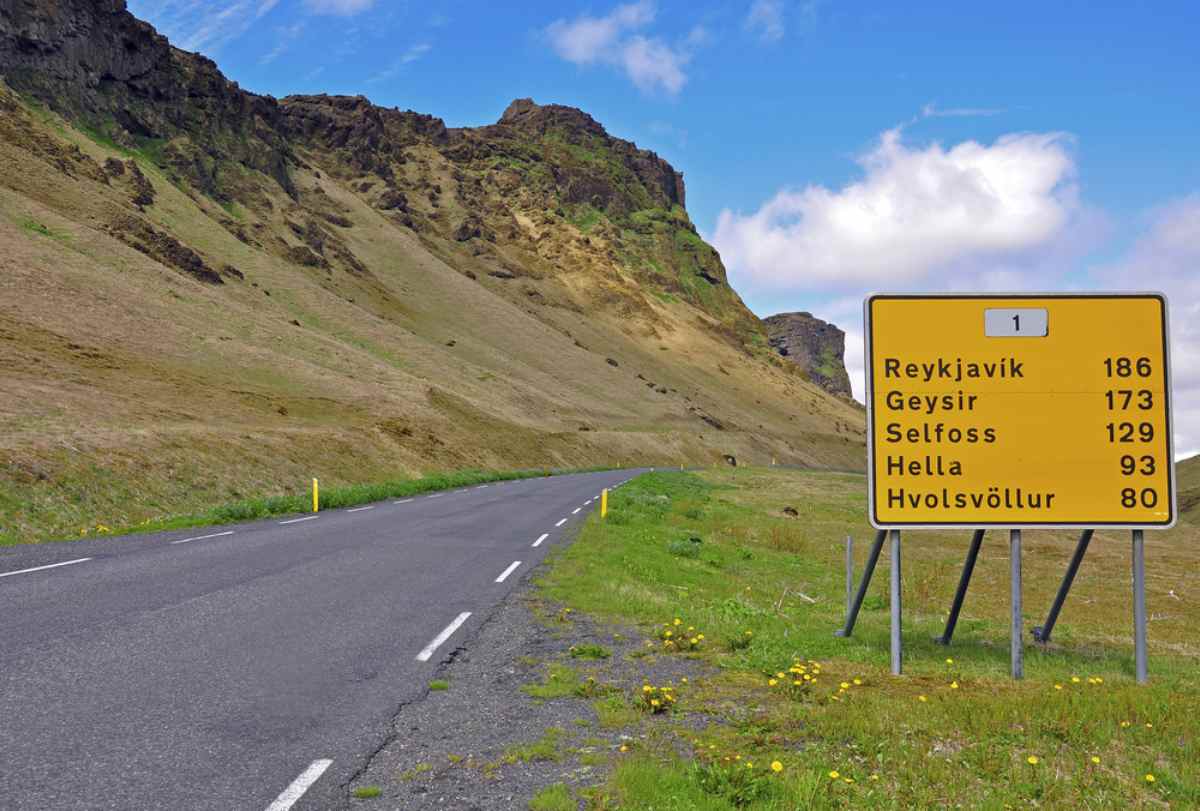
Loss of Use Fees
Loss of use fees are charges for the rental income lost while your damaged car is being repaired. Companies calculate them using the daily rental rate times the number of days the car is out of service. In Iceland, repair delays from imported parts make these costs spike.
Fees of $1,000-$3,000 (143,000-429,000 ISK) are common, especially during summer’s high rates. Most personal auto and travel insurance excludes these charges. Credit card coverage rarely helps, except for some premium cards like Chase Sapphire. Ask about loss of use terms before renting, or choose coverage that explicitly includes them.
Administrative and Processing Charges
An accident in a rental car in Iceland triggers more than repair bills. Rental companies add administrative and processing charges for handling claims, insurance communication, and paperwork.
Expect 2,990-4,000 ISK ($21-$28 USD) per incident just for documentation. Towing adds layers: $100-$500 for the tow, $150-$200 in admin fees, and $20–$50 daily for impound storage.
Towing quickly snowballs. A basic recovery might start at $500 and climb toward $1,000 once storage and admin fees pile on. Traffic tickets add their own sting with 2,500-3,000 ISK ($18-$21 USD) charged just for processing, even if you settle the fine yourself. These fees feel sneaky because they hide in the contract, yet rental companies defend them as the cost of keeping their systems running.
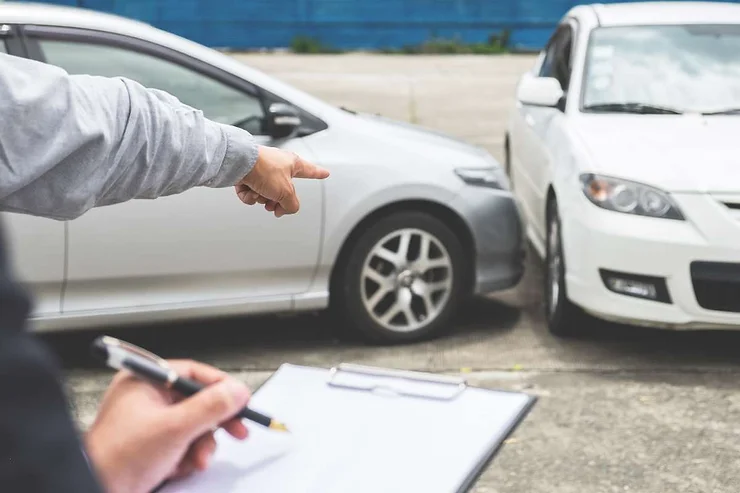
What If You Didn’t Buy Any Insurance?
Wondering what happens if you wreck a rental car in Iceland without insurance? You pay everything. Rental companies charge your credit card on the spot or demand immediate payment, often freezing your funds.
Full liability means covering repairs, loss of use fees, towing, and admin charges, which can climb into thousands of dollars and hundreds of thousands of ISK. Some cases lead to legal action if payment fails.
Who Is Liable in Different Scenarios?
Liability in Iceland is simple on paper and brutal in practice. Fault decides who pays, but even when it is not yours, the headache is still yours to deal with.
You Were at Fault
The fault is yours, the bill is yours. Insurance softens the blow, capping what you pay. No insurance? There is no cap. Think speeding on gravel, losing control, and smashing into a barrier. In Iceland, that mistake means every cost from repairs to downtime sticks to you.
The Other Driver Was at Fault
When the other driver causes the crash, their insurance should pay. Do not celebrate yet. In Iceland, claims crawl. Rental companies often charge you first, then refund later. With few insurers and slow processing, expect weeks of waiting while your money stays locked up.
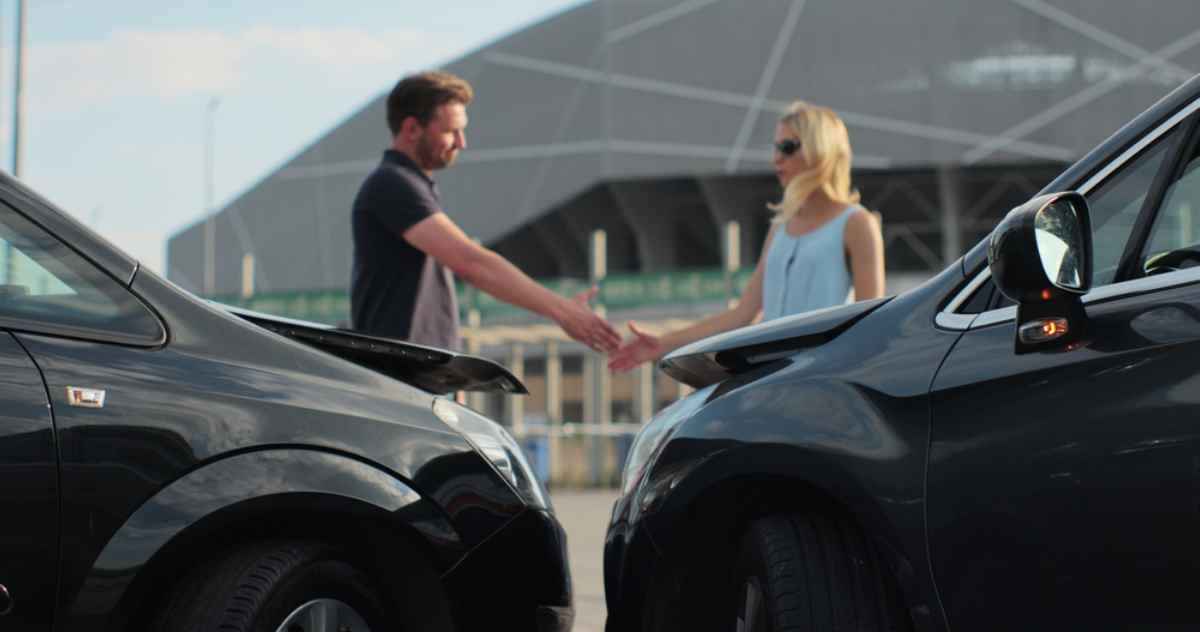
Single-Vehicle Accidents (e.g., gravel, wind, animals)
Most crashes here involve only one car. They account for 87% of rural road injuries, with tourists in 25.6% of cases. An accident in a rental car from gravel, wind, or sheep is usually your problem. Many policies exclude this damage, so read the fine print first.
What If the Car Is a Total Loss?
If the vehicle is declared irreparable, the insurer typically pays out the market value of the car at the time of the accident, minus your deductible. For renters, this means the rental company is compensated, not you. If your coverage is limited or excludes certain types of damage, you may be personally liable for the gap between what insurance covers and the actual replacement cost.
What About Injuries or Damage to Other People?
Icelandic law requires every rental car to carry mandatory liability insurance. This insurance only applies to third parties, covering injuries to other people or damage to their property if you are at fault.
It does not cover damage to your rental car. For that, you need collision or comprehensive coverage (CDW, SCDW, or similar). Think of it this way: liability insurance protects others from you, while collision damage coverage protects the rental car itself.
Even with liability in place, there are limits. Serious accidents that exceed the policy cap could leave you personally responsible for the extra costs. That’s why many travelers choose optional coverage to close these gaps.
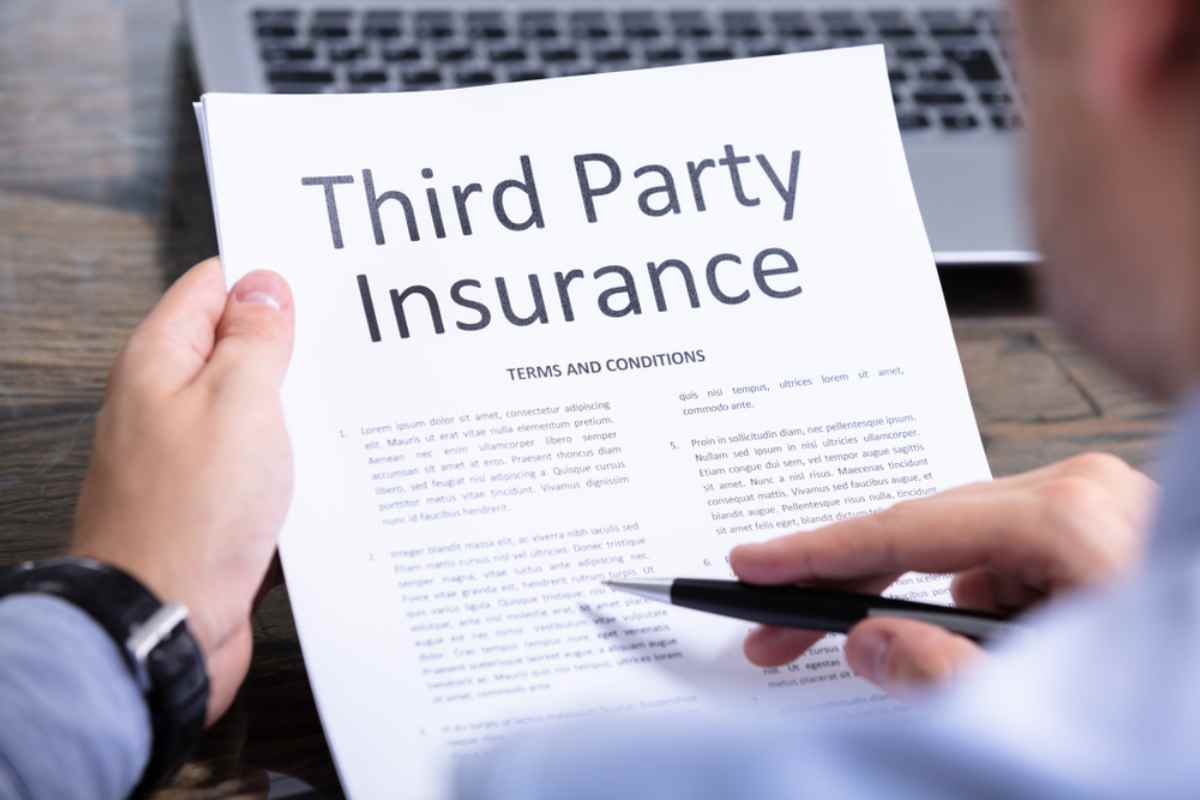
What If the Other Driver Doesn’t Have Insurance?
Uninsured drivers are rare in Iceland, but not impossible. If you collide with one, the process can be slow and complicated. In many cases, your own insurance, or the rental company’s liability policy, must step in first to cover the costs.
Afterward, the insurer may attempt to recover money from the uninsured driver through subrogation, but that takes time, and you may not see immediate reimbursement.
Special Cases: Underage Drivers, Unauthorized Drivers, Off-Road Driving
In Iceland, you need a valid driver’s license and must be at least 20 to rent a car. Underage or unlicensed drivers risk criminal charges. Unauthorized drivers void insurance completely. Off-road driving is illegal, and any damage from it is your responsibility, with no coverage available.
Criminal Charges and Legal Consequences
Some violations go beyond insurance and straight into criminal law:
- DUI: The legal blood alcohol limit in Iceland is just 0.05%. Penalties include fines starting at 100,000 ISK (≈ $700), a minimum two-month license suspension, and in severe cases, imprisonment.
- Driving without a license: Treated as a criminal offense, not a minor infraction. Expect hefty fines, possible arrest, and automatic loss of insurance protection.
- Gross negligence (reckless driving, excessive speeding, endangering others): Can result in license revocation, large fines, civil liability for all damages, and criminal prosecution.
In short: violations like DUI, reckless driving, or being behind the wheel without a valid license don’t just void your coverage; they can leave you with criminal charges, a suspended license, and serious financial consequences.
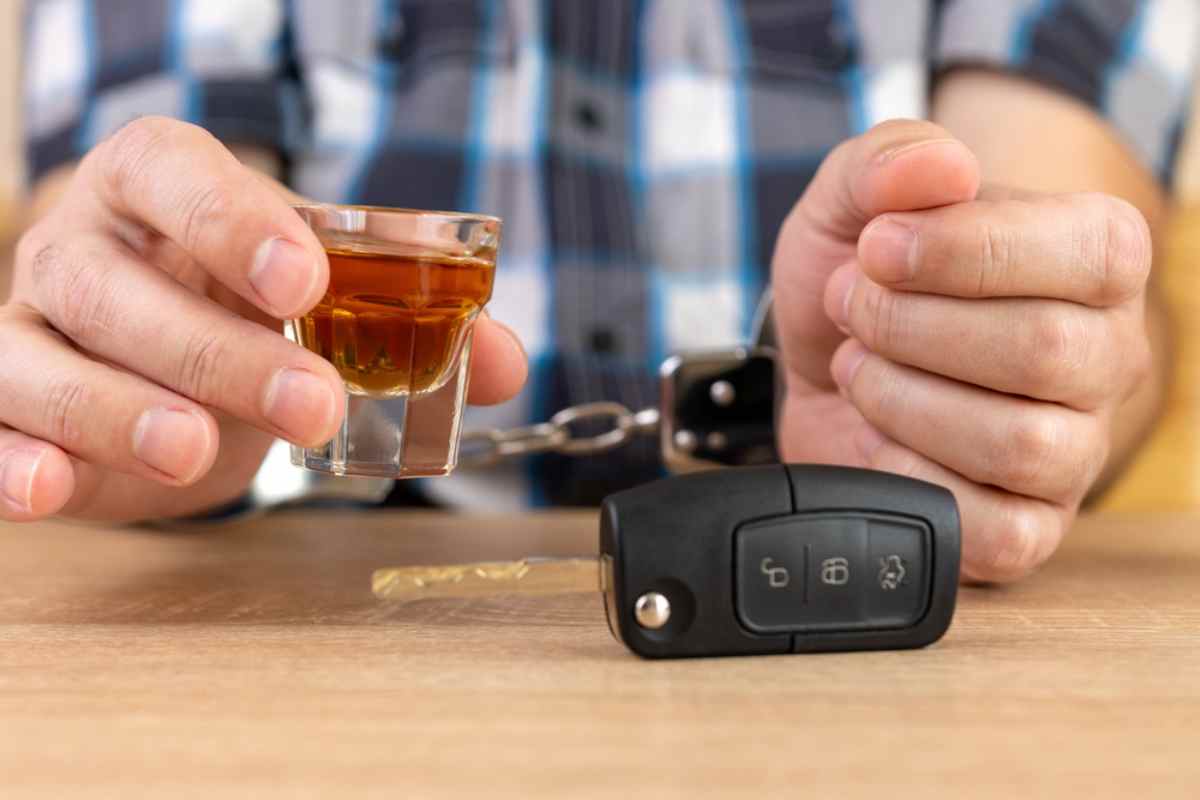
How an Accident Can Affect the Rest of Your Trip
An accident in Iceland doesn’t just hurt your wallet, it can derail your entire journey:
- No guaranteed replacement: Even large rental companies may not have a spare car ready, especially during peak travel season. You could be left without a vehicle for days.
- No refund for unused days: Most contracts make it clear; if your trip ends early due to an accident, the unused rental days are not reimbursed.
- Stranded without transport: Until the rental company and insurers sort things out, you may have no way to continue your itinerary, meaning missed hotels, tours, or even flights.
The real pain point is not only the financial hit but the fact that your carefully planned road trip through Iceland can come to an abrupt stop. One crash can turn trip of a lifetime into trip cut short.
Tips to Avoid Trouble After a Crash
When thinking about what happens if you crash a rental car with insurance, the difference often lies in how you handle the aftermath. Follow these tips to protect yourself:
- Never admit fault. Avoid phrases like ‘I should have paid more attention.’ Such words can void coverage or invite legal trouble.
- Show concern without blame. Ask if the other driver is okay or needs assistance, but keep it neutral.
- Do not sign or promise anything. Avoid making assurances like ‘insurance will handle it’ at the scene.
- Keep quiet about the rental. Some may exploit the fact that you are driving a rental car.
- Plan routes with the rental agency. Driving a luxury car on roads that require a 4x4 can be deemed negligence, making you fully liable for damages.
- Stay calm and follow procedures. Proper conduct helps insurance work in your favor.
What Happens if You Crash a Rental Car? The Truth Hurts
Wondering what happens if you crash a rental car in Iceland? It makes you bankrupt, that’s what. Unless, of course, you have read this entire article. Skipping insurance here is not brave. It is reckless.
The country’s winds, gravel, and endless repair delays chew through budgets fast. Book with a company that offers full coverage and real support. Drive without it, and you will pay for every mistake, plus the ones you did not make.
After everything you have learned, do you still think it is wise to drive without insurance? Check out our fleet with full coverage and hit Iceland’s roads stress-free.




